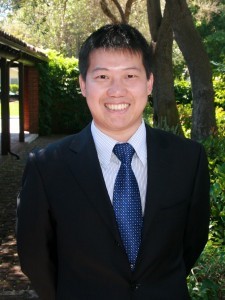
Speaker: Yan Yao, Associate Professor
Affiliation: Department of Electrical and Computer Engineering, University of Houston
Versatile Redox-Active Organic Molecules for Long Cycle Life Safe Batteries
Lithium ion batteries have reshaped our life with their omnipresence in portable electronics. However, increasing the specific energy of these batteries is reaching its limit and high-profile fire accidents (e.g. cell phones spontaneously combusting) cast doubt of their applications in electric vehicles and large-scale energy storage. Intrinsically safe batteries such as aqueous batteries and all-solid-state batteries are being actively studied in the battery community. Aqueous batteries use water-based electrolytes and offer robustness and environmental friendliness over lithium-ion batteries that feature flammable organic electrolytes. However their adoption is plagued by the poor cycle life due to the structural and chemical instability of the anode materials. In the first part of talk, I will report several redox-active quinones (oxidized derivatives of aromatic compounds) as anodes for aqueous batteries by exploiting their structurally stable ion-coordination charge storage mechanism and chemical inertness towards aqueous electrolytes. We demonstrate three systems that coupled with industrially established cathodes and electrolytes exhibit long cycle life (up to 3,000 cycles/3,500 h), fast kinetics (≥ 20C), high anode specific capacity (up to 200-395 mAh g-1), and state-of-the-art specific energy/energy density for several operational pH values (-1 to 15), charge carrier species (H+, Li+, Na+, K+, Mg2+), and atmosphere (with/without O2). Reversible proton-coupled electron transfer process is also first demonstrated in organic crystals. In the second part, I will discuss the application of quinones in all-solid-state batteries. One main challenge is the mismatch between low anodic decomposition potential of solid-state sulfide electrolytes and high operating potentials of cathodes which leads to a volatile cathode–electrolyte interface. I will show how molecular engineering of quinone molecules leads to high-capacity cathode materials in all-solid-state batteries that is chemically and electrochemically compatible with sulfide electrolyte.
About the Speaker
Dr. Yan Yao is an Associate Professor of Electrical and Computer Engineering at the University of Houston. He received his Ph.D. in Materials Science and Engineering from UCLA in 2008. Prior to joining the University of Houston as an assistant professor in 2012, he served as a senior scientist at Polyera Corporation (now Flexterra) from 2008 to 2010 and a postdoctoral fellow at Stanford University from 2010 to 2012. Dr. Yao’s current research interests include magnesium batteries, aqueous batteries, solid-state batteries, and organic battery materials. He has authored 72 publications with papers in Nature Materials, Nature Nanotechnology, Nature Comm., JACS, Angewandte Chemie with citations over 18,000, 14 granted patents and 9 pending applications. Dr. Yao’s honors include Robert A. Welch Professorship (2012), US ONR Young Investigator Award (2013), Ralph E. Powe Junior Faculty Enhancement Award (2014), Teaching Excellence Award (2016), Scialog Fellow from the Research Corporation (2017), and UH Award for Excellence in Research (2018). Dr. Yao’s research is funded by the US Department of Energy Vehicle Technology Office, Advanced Research Projects Agency-Energy, Office of Naval Research, National Aeronautics and Space Administration, and the National Science Foundation.
Date/Time:
Date(s) - Apr 13, 2018
10:30 am - 12:00 pm
Location:
2101 Engineering V
420 Westwood Plaza Los Angeles CA 90095
